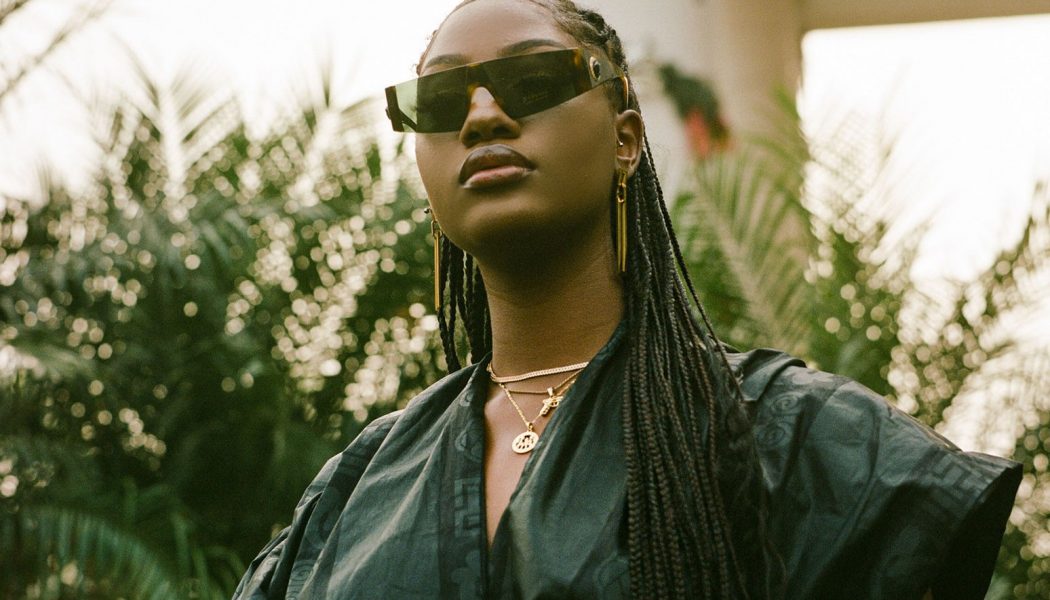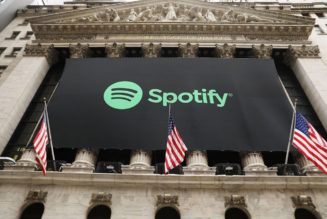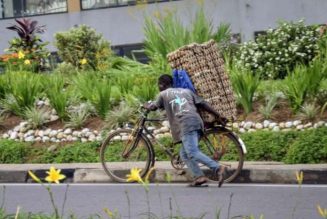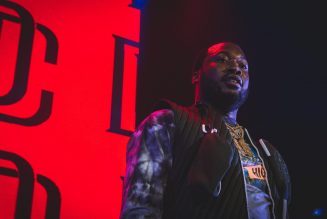
“Africa has birthed a lot of special talents that have been creating amazing music for a long time and we’re happy to finally have the platforms and the means to share our music across the continent and to the rest of the world,” Tems tells Billboard. “[The Africa Rising program] allowed my music to reach new listeners and [has] also given my supporters and myself something to be excited about in these tough times.”
ALL EYES ON AFRICA
Over the past several years, labels, distributors and industry trade groups have turned their focus towards the African music market, and Apple Music is not the only streaming service making inroads on the continent, or supporting its local artists. (Tems, for example, was also included as part of the latest class of YouTube’s Foundry program, which was announced in May, and the video for “Damages” has racked up over 2.6 million views on the platform to date.) YouTube is widely available in Africa — though its premium service is available in just Egypt, Nigeria and South Africa — while Spotify is in five countries on the continent. And others like Deezer and Chinese-owned free service Boomplay are enjoying success, particularly the latter, which comes pre-installed on owner Transsion’s smart phones, Africa’s largest smartphone seller. The IFPI, meanwhile, opened its first office in Africa last June, in Kenya, reflecting the industry’s focus on the continent, having previously only tracked data in South Africa.
The continent, with a population of more than 1.2 billion, represents a giant opportunity for the global music business, both in targeting new customers but also in capitalizing on the continent’s talent pool internationally. There’s an expectation that it’s only a matter of time before Africa produces a watershed moment like what emerged out of Latin America with Luis Fonsi and Daddy Yankee‘s “Despacito,” which helped pave the way for the global rise of the likes of global Spanish-language stars like J Balvin, Bad Bunny and Maluma today.
Apple is among the biggest music streaming services — not to mention conglomerates — in the world, and it is making its push into the continent a cornerstone of its international growth. A major expansion last April saw its footprint extend from 12 African countries to 37, with a focus on local curation and playlisting and ground-level support for local artists in each country.
“The strategy has been very much about trying to make sure that we’re representing as many countries as we possibly can be,” says Karl Anderson, Apple Music’s head of music in Africa, who’s based in South Africa. “It’s about serving up a hyper-local editorial experience for our subscribers on the continent. We have playlists covering every possible genre, region and country, we’ve recruited some of Africa’s top creatives — designers, photographers — to make sure that the artwork that we’re serving up feels authentic to those particular countries or genres.”
CASHING IN WITH CREATIVE PARTNERSHIPS
Expanding streaming in Africa comes with infrastructure challenges. Unlike many of its free-tiered competitors, Apple Music requires a payment system on file, which can be difficult in the continent’s mostly cash-based economies, execs say. The company has worked around this through partnerships with telecom companies, department stores like Woolworth’s and services providers like South African healthcare company Discovery Vitality that have established payment systems with customers, while offering six-month free trials for new users in each of the two-dozen countries in which it launched last year. And it seems to be working: While Apple declined to provide hard numbers, it says both subscribers and plays were up 40% year over year for the continent as a whole through its fiscal year that ended Sept. 30, and the 25 new countries have generated more than 100 million plays in the five months between launch and that date.
In Nigeria and South Africa — two countries the service has been in since it first debuted in June 2015 — Apple Music is also growing: In Nigeria, streams grew 119% year over year and subscribers doubled, while in South Africa, Apple’s biggest music territory on the continent, plays and subscribers both grew more than 20% year over year.
But building Apple Music’s base of subscribers and listeners on the continent is just one aspect of the service’s efforts there: it’s also about exporting the music abroad and across the wider Apple Music ecosystem, which stretches across 167 countries and territories around the world. Through Sept. 30, Apple says that plays of all African music genres were up 114% globally, and 138% outside of Africa, particularly in countries like the U.S. (up 113%), Canada (up 96%), the U.K. (up 91%), France (up 76%) and Germany (up 124%), as well as Russia (up 77%), Australia (up 65%) and Japan (up 89%).
“Our thinking is very much trying to create African superstars, build them up to a certain level on the continent as best as we possibly can, and then try and use the Apple Music ecosystem around the world to break these artists on a global basis,” says Anderson. “The consumption of these African playlists — particularly Africa Now and Afrobeats Hits — is massive with the diaspora. These people are tapping into family and friends back home on the continent and they are hearing about the biggest new artists before anyone else does. They are ambassadors in terms of taking that music to a wider audience internationally.”
LABELS AND DISTRIBUTORS ARE LISTENING
Apple’s early support of several African artists has also helped get them signed by some of the biggest record companies in the world, as much of the music business continues to look toward the continent to find artists who can follow the likes of Tiwa Savage, Wizkid, Mr. Eazi, Davido and Burna Boy to global acclaim. Nigerian rapper Rema, who Apple Music has been working with since the beginning of his career, signed a distribution deal with Universal’s Caroline last October; Nigerian singer Omah Lay, Apple Music’s first Africa Rising artist, signed with Warner Records’ Sire label this past summer, and released his latest EP, What Have We Done, on Nov. 20.
South African singer Elaine released her debut EP, Elements, in the fall of 2019, was featured on Apple Music global head of hip-hop and R&B Ebro Darden’s Beats 1 (now Apple Music 1) radio show that October and was a New Artist Spotlight artist that November; by February 2020 she was the cover star of Apple Music’s Africa Now playlist and was nominated for best soul/R&B album at the South African Music Awards, after which she signed with Columbia, which re-released Elements last August.
“Apple has done a great job at utilizing [playlists and radio] as a means of discovery for new users, and hopefully new fans as the campaigns go on,” says Columbia senior vp sales Joe Gallo, pointing to early and consistent promotion on Apple’s A-List South Africa playlist. “That’s something that shines a light, whether it’s a developing artist or an established artist from the region, that’s a great tool and means for fans, A&R people, lovers of music, to really see what’s happening and what’s big in the market locally.”
“They are an essential piece of the artist discovery process,” says Sire Records president Rani Hancock, pointing to Omah Lay’s collaboration with 6lack, “Damn,” which Apple placed on the cover of its flagship R&B Now playlist and “helped open him up to a whole new audience here.”
SEEKING THE NEXT ‘DESPACITO’
One simple way of summarizing all these efforts — in getting the continent on board with streaming, in allocating additional resources towards music infrastructure in various countries and in investing in artists’ careers, in helping artists grow beyond borders — is the search for that “Despacito” moment, which helped shine a light not just on a new crop of artists and helped usher in the acceptance of Spanish-language music on mainstream radio, but has made fans more in tune with the dynamics and differences within Latin American music — reggaeton, tropicalia, urbano and more. It’s that idea that also helps animate and propel Apple’s efforts on the continent.
“I’m looking forward to helping artists in Africa be more than just African artists,” says Darden. “Looking at African artists as just afrobeat, or as just ‘world music,’ as it’s often been called, I feel like that’s doing a disservice and it’s marginalizing what’s actually happening with the youth and the artists coming out of Africa. They make R&B, they make hip-hop, they make reggae, they make dance music and many other genres of music. So I just want to make sure that I can help artists be seen for the genres of music that they’re making, not for the regions that they come from.”










